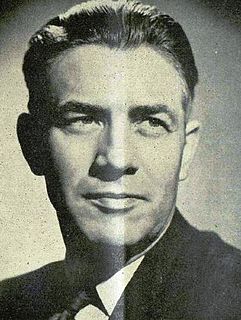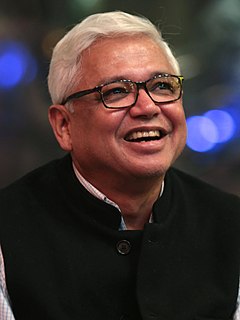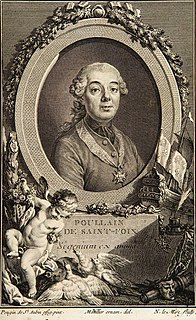A Quote by Maurice Blanchot
Every artist is linked to a mistake with which he has a particular intimate relation. There is the mistake of Homer, of Shakespeare — which is perhaps, for both, the fact of not existing. Every art draws its origin from an exceptional fault, every work is the implementation of this original fault, from which come to us a new light and a risky conception of plenitude.
Related Quotes
There is one vice of which no man in the world is free; which every one in the world loathes when he sees it in someone else; and of which hardly any people, except Christians, ever imagine that they are guilty themselves. […] There is no fault which makes a man more unpopular, and no fault which we are more unconscious of in ourselves.[…]The vice I am talking of is Pride or Self-Conceit: and the virtue opposite to it, in Christian morals, is called Humility.
A relation is formed betwixt every man and the fruits of his own labour, the very thing we call property, which he himself is sensible of, and of which every other is equally sensible. Yours and mine are terms in all languages, familiar among savages, and understood even by children. This is a fact, which every human creature can testify.
In every remodelling of the present, the existing condition of things must be supplanted by a new one. Now every variety of circumstances in which men find themselves, every object which surrounds them, communicates a definite form and impress to their internal nature. This form is not such that it can change and adapt itself to any other a man may choose to receive; and the end is foiled, while the power is destroyed, when we attempt to impose upon that which is already stamped in the soul a form which disagrees with it.
Art is a creative effort of which the wellsprings lie in the spirit, and which brings us at once the most intimate self of the artist and the secret concurrences which he has perceived in things by means of a vision or intuition all his own, and not to be expressed in ideas and in words-expressible only in the work of art.
In the first section of the Doctrine and Covenants we read that 'the Lord shall come to recompense unto every man according to his work, and measure to every man according to the measure which he has measured to his fellow man.' (D&C 1:10.) This principle, showing the manner by which God will judge us, puts a new light upon the commandment to love our neighbors as ourselves, and should persuade us to take that law seriously.
You see, in our family we don't know whether we're coming or going - it's all my grandmother's fault. But, of course, the fault wasn't hers at all: it lay in language. Every language assumes a centrality, a fixed and settled point to go away from and come back to, and what my grandmother was looking for was a word for a journey which was not a coming or a going at all; a journey that was a search for precisely that fixed point which permits the proper use of verbs of movement.
What is man born for but to be a Reformer, a Remaker of what man has made? A renouncer of lies; a restorer of truth and good? Imitating that great Nature which embossoms us all, and which sleeps no moment on an old past, but every hour repairs herself, yielding us every morning a new day, with every breath a new life?
The newspaper is a Bible which we read every morning and every afternoon, standing and sitting, riding and walking. It is a Biblewhich every man carries in his pocket, which lies on every table and counter, and which the mail, and thousands of missionaries, are continually dispersing. It is, in short, the only book which America has printed, and which America reads. So wide is its influence.
A schism has taken place among the chemists. A particular set of them in France have undertaken to remodel all the terms of the science, and to give every substance a new name, the composition, and especially the termination of which, shall define the relation in which it stands to other substances of the same family.




































